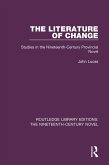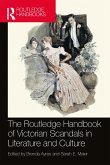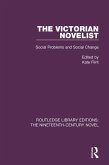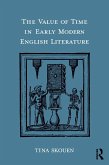First published in 1977, this book studies three important nineteenth-century novelists: Mrs Gaskell, William Hale White and Thomas Hardy. They are all provincial novelists who wrote about social change and the attendant problems and pressures this brought with it. Unlike previous critics, who have tended to concentrate on her 'social-problem' novels, here the author treats Gaskell's
Sylvia's Lovers and
Cousin Phillis as central texts. However a chapter also examines Gaskell and Engels perception of social change in Manchester. This book also seeks to correct Hale White's neglect, anointing
Revolution in Tanner's Lane and
Clara Hopgood major works. The survey of women in Hardy's novels represents an illuminating new angle and leads on to a discussion of love and marriage in later Victorian fiction.
Dieser Download kann aus rechtlichen Gründen nur mit Rechnungsadresse in A, B, BG, CY, CZ, D, DK, EW, E, FIN, F, GR, HR, H, IRL, I, LT, L, LR, M, NL, PL, P, R, S, SLO, SK ausgeliefert werden.
Hinweis: Dieser Artikel kann nur an eine deutsche Lieferadresse ausgeliefert werden.









